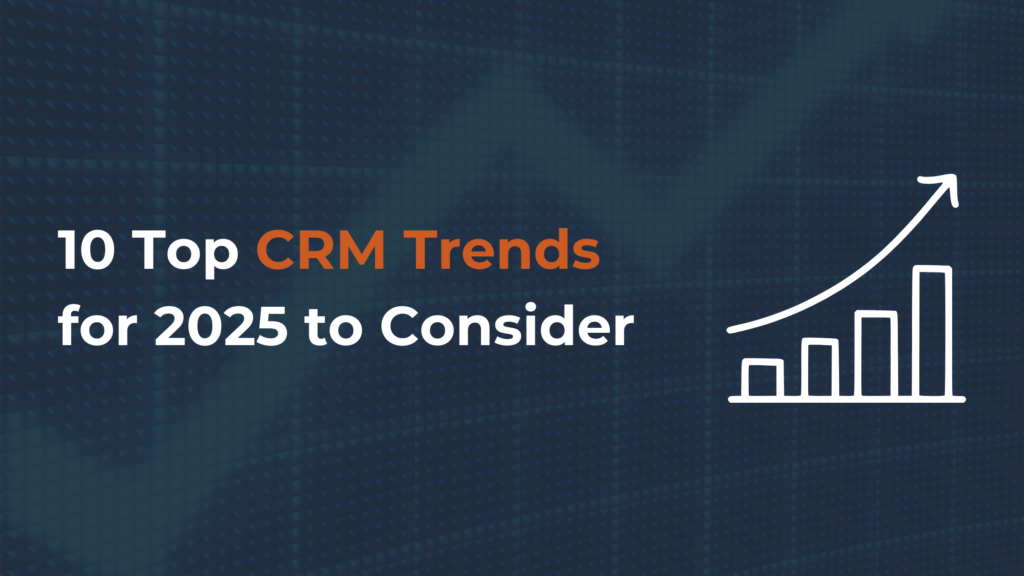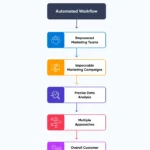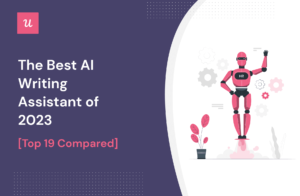Artificial Intelligence (AI) is changing how businesses operate. In 2025, AI-driven Customer Relationship Management (CRM) systems will be at the forefront.
Businesses constantly seek ways to improve customer interactions. AI-driven CRMs are the answer. These systems use smart algorithms to analyze data and predict customer needs. They help businesses understand their clients better, leading to more personalized service. By 2025, AI-driven CRMs will become essential for companies aiming to stay competitive. In addition to improving customer interactions, AI-driven CRMs also streamline processes and save time for businesses. They automate your CRM, allowing for more efficient data entry, lead scoring, and customer segmentation. With the ability to handle routine tasks, businesses can focus on more strategic and value-added activities to enhance their customer relationships. AI-driven CRMs can also integrate with other systems, such as marketing automation platforms, to further improve efficiency and streamline processes. By automating repetitive tasks, businesses can ensure that data is always up to date and accurate, leading to better decision making and more targeted marketing efforts. With the ability to automate your CRM, businesses can deliver a seamless and personalized customer experience, ultimately driving customer satisfaction and loyalty.
They will offer insights that were once unimaginable. From automating tasks to providing deep analytics, these trends will transform the business landscape. Stay ahead by understanding these evolving trends and their potential impact on your business operations.
Table of Contents
ToggleAi-powered Customer Insights
AI-powered customer insights are transforming how businesses understand their customers. These insights provide a deeper view into customer behavior and preferences. By leveraging AI, companies can make data-driven decisions. This helps in crafting personalized experiences for their customers.
Predictive Analytics
Predictive analytics uses historical data to forecast future trends. It helps businesses anticipate customer needs before they arise. For example, a customer who often buys winter gear might get special offers before winter. This boosts sales and customer satisfaction. Predictive analytics enables businesses to stay ahead of market trends.
Behavioral Analysis
Behavioral analysis examines how customers interact with products and services. AI tracks patterns in customer behavior. It identifies what products customers like or dislike. This data helps businesses tailor their offerings to meet specific needs. Understanding customer behavior leads to better marketing strategies. It ensures customers receive relevant recommendations.
Personalized Customer Experiences
Artificial intelligence (AI) is transforming how businesses interact with customers. By 2025, AI-driven CRM systems will offer highly personalized experiences. These systems will analyze vast amounts of data to understand customer preferences. This leads to improved customer satisfaction and loyalty.
Tailored Recommendations
AI-driven CRMs will provide tailored recommendations based on customer behavior. By analyzing past purchases, search history, and interaction patterns, AI can suggest products or services that match individual preferences. This level of personalization helps businesses offer more relevant options, increasing the likelihood of a sale.
| Customer Data | AI Analysis | Recommendations |
|---|---|---|
| Past Purchases | Analyzes buying trends | Suggests similar products |
| Search History | Tracks interests | Offers related items |
| Interaction Patterns | Identifies preferences | Recommends popular choices |
Dynamic Content
Dynamic content adapts to the user’s real-time needs and interests. AI-driven CRMs can change website content, emails, and advertisements based on customer behavior. For example, a returning visitor might see different promotions than a first-time visitor.
- Website Content: Personalized banners and product displays.
- Email Campaigns: Customized offers and messages.
- Advertisements: Targeted ads based on browsing history.
This dynamic approach ensures that customers receive the most relevant information. It enhances their overall experience and fosters a stronger connection with the brand.
Automated Customer Service
Automated customer service is transforming how businesses interact with customers. In 2025, AI-driven CRM systems will lead this change. These systems will streamline interactions and improve customer satisfaction. Two key elements of automated customer service are chatbots and virtual assistants, and 24/7 support.
Chatbots And Virtual Assistants
Chatbots and virtual assistants are becoming essential in AI-driven CRMs. They handle customer queries efficiently. Businesses can use them to provide instant responses to common questions. This reduces the workload on human agents. Additionally, chatbots and virtual assistants can handle multiple conversations at once. This increases the efficiency of customer service operations.
- Chatbots: Automated programs that chat with customers.
- Virtual Assistants: AI-powered tools that help customers with tasks.
These technologies are not only cost-effective but also scalable. They can be integrated into various communication channels. This includes websites, social media, and messaging apps. By 2025, we can expect more advanced chatbots and virtual assistants in CRMs.
24/7 Support
Customers expect support at any time. AI-driven CRMs offer 24/7 support. This ensures that customers receive assistance whenever they need it. Automated customer service systems work round the clock. They provide answers and solve issues without human intervention.
Here are some benefits of 24/7 support:
- Improved Customer Satisfaction: Customers appreciate immediate help.
- Increased Efficiency: Issues are resolved faster.
- Cost Savings: Reduced need for a large customer service team.
In 2025, 24/7 support will be a standard feature in AI-driven CRMs. This will enhance customer experiences and build stronger relationships.
Sales Forecasting Enhancements
Sales forecasting is critical for any business. It helps predict future sales, manage inventory, and allocate resources efficiently. In 2025, AI-driven CRM systems will significantly enhance sales forecasting. These advancements will provide more accurate predictions and drive revenue growth.
Accurate Predictions
AI-driven CRM systems analyze vast amounts of data. This data includes past sales, market trends, customer behavior, and economic indicators. The AI uses this data to create highly accurate sales forecasts. These forecasts help businesses make informed decisions.
Traditional methods often rely on human intuition. This can lead to errors. AI removes this uncertainty. It provides predictions based on solid data and complex algorithms. The result is a higher level of accuracy.
Table showing differences between traditional and AI-driven sales forecasting:
| Aspect | Traditional Forecasting | AI-Driven Forecasting |
|---|---|---|
| Data Analysis | Limited | Comprehensive |
| Accuracy | Moderate | High |
| Human Error | High | Low |
Revenue Growth
Accurate sales forecasts directly impact revenue growth. Businesses can plan better with precise predictions. This includes managing stock levels, optimizing pricing strategies, and streamlining operations.
AI-driven CRM systems also identify potential sales opportunities. They analyze customer data to find patterns and trends. This helps sales teams target high-potential leads. Focusing on these leads increases conversion rates.
Key benefits of AI-driven sales forecasting for revenue growth:
- Optimized inventory management
- Better pricing strategies
- Efficient resource allocation
- Higher conversion rates
In summary, AI-driven CRM systems will reshape sales forecasting in 2025. They provide accurate predictions and drive revenue growth. Businesses that adopt these technologies will have a competitive edge.
Intelligent Lead Scoring
In 2025, AI-driven CRM systems are transforming how businesses operate. One significant trend is Intelligent Lead Scoring. This technology helps companies identify the most promising leads. Businesses can then focus their efforts more effectively.
Prioritizing Prospects
Intelligent Lead Scoring ranks potential customers based on their likelihood to convert. It uses AI algorithms to analyze data points. These data points include past interactions and demographic information. The system assigns scores to each lead. Higher scores indicate a better chance of conversion. This allows sales teams to prioritize high-potential prospects.
Improving Conversions
By focusing on leads with higher scores, sales teams can improve conversion rates. They spend less time on unqualified leads. This increases efficiency and boosts revenue. Intelligent Lead Scoring also provides insights into customer behavior. These insights help in crafting personalized sales pitches. As a result, businesses see better engagement and higher sales.

Credit: www.facebook.com
Enhanced Data Security
As businesses embrace AI-driven CRM systems, enhanced data security becomes a critical focus. Protecting customer data is not just a regulatory requirement. It is also key to maintaining customer trust. In 2025, AI-powered CRMs offer advanced features to safeguard sensitive information.
Protecting Customer Data
AI-driven CRMs use advanced encryption methods. These methods secure customer data from unauthorized access. Encryption ensures that data remains private, even during transmission.
Another key feature is real-time threat detection. AI algorithms continuously monitor for suspicious activities. They can detect and respond to threats instantly. This proactive approach minimizes the risk of data breaches.
Additionally, AI systems often use multi-factor authentication (MFA). MFA adds an extra layer of security. It requires users to provide two or more verification factors to gain access.
Regulatory Compliance
Businesses must comply with various data protection regulations. AI-driven CRMs help ensure compliance with laws like GDPR and CCPA. These systems automatically update to reflect changes in regulations.
AI tools can also generate audit trails. Audit trails track data access and modifications. This transparency helps businesses demonstrate compliance during audits.
Moreover, AI-driven CRMs can manage data retention policies. They ensure that customer data is stored and deleted according to regulatory requirements. This reduces the risk of non-compliance and associated fines.
| Feature | Benefit |
|---|---|
| Encryption | Secures data during transmission |
| Real-time threat detection | Prevents data breaches |
| Multi-factor authentication | Enhances user verification |
| Audit trails | Ensures regulatory compliance |
| Data retention management | Adheres to legal requirements |
Integrative Crm Platforms
Integrative CRM Platforms are redefining how businesses manage customer relationships. These platforms unify various customer interaction points into one seamless system. This integration ensures that companies have a complete view of their customers, enabling personalized and efficient service. In this section, we will explore the key features of these platforms, focusing on Seamless Integrations and a Unified Customer View.
Seamless Integrations
Modern CRM platforms integrate smoothly with other business tools. This includes email marketing systems, social media channels, and e-commerce platforms. Such integrations eliminate data silos, making information accessible across departments.
- Email Marketing: Sync customer emails and interactions directly with CRM.
- Social Media: Track and respond to customer interactions on social channels.
- E-commerce: Connect sales data to customer profiles for better insights.
These seamless integrations help businesses maintain a consistent customer experience. They ensure that every interaction is logged and accessible.
Unified Customer View
A unified customer view is crucial for effective CRM. It provides a comprehensive profile of each customer, integrating data from various touchpoints. This includes purchase history, customer service interactions, and social media activity.
Consider the following key benefits:
- Personalized Service: Tailor interactions based on a complete customer profile.
- Enhanced Insights: Analyze customer behavior with all data in one place.
- Improved Efficiency: Reduce time spent searching for information.
Businesses can use this unified view to predict customer needs and enhance satisfaction. This leads to better customer retention and loyalty.
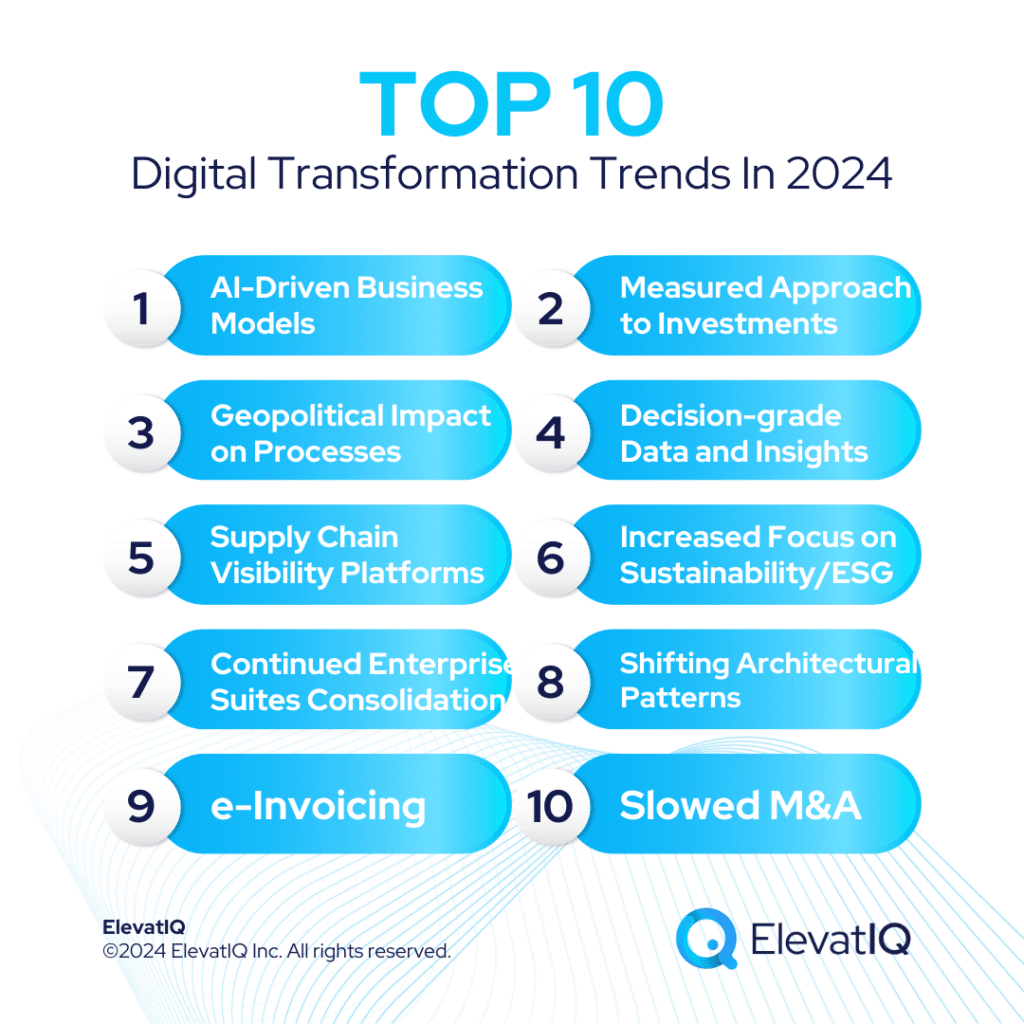
Credit: www.elevatiq.com
Ai-driven Marketing Strategies
In 2025, AI-driven marketing strategies will dominate the business landscape. These strategies will help companies connect with customers more effectively. This section explores how AI enhances marketing efforts.
Targeted Campaigns
AI allows marketers to create highly targeted campaigns. By analyzing customer data, AI can identify patterns and preferences. This enables businesses to tailor messages to specific audiences. For example, AI can segment customers based on their buying history. It can also predict future purchases. This leads to more relevant and effective marketing campaigns.
Consider the following benefits of AI-targeted campaigns:
- Increased customer engagement
- Higher conversion rates
- Improved customer satisfaction
Efficient Ad Spend
AI helps businesses optimize their ad spend. It can analyze vast amounts of data quickly. This helps in identifying the most effective channels and times to run ads. AI also reduces wastage by targeting the right audience with precision.
Here are some ways AI contributes to efficient ad spend:
- Real-time bidding: AI can manage ad bids in real-time, ensuring the best prices.
- Predictive analytics: AI forecasts ad performance, helping budget allocation.
- Ad placement optimization: AI identifies the best platforms for ad placement.
By leveraging AI, businesses can maximize their return on investment (ROI).
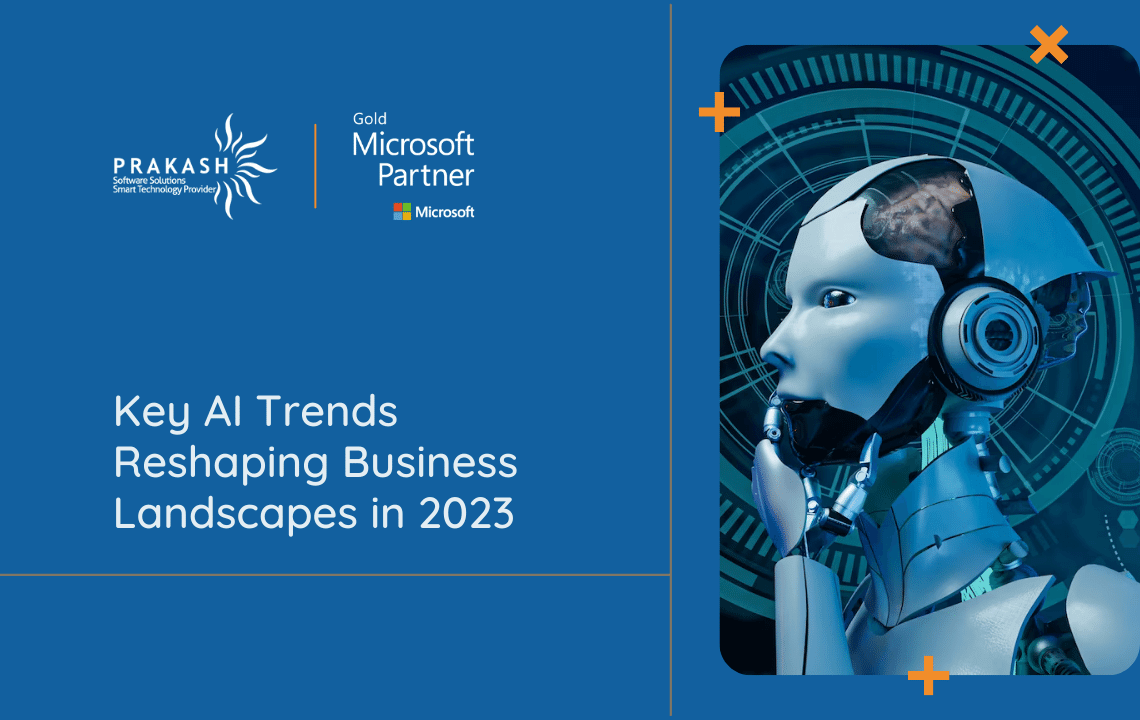
Credit: prakashinfotech.com
How Will Ai-Driven CRM Trends Impact Sales Intelligence and Revenue Growth in the Future?
In the future, businesses will leverage ai for better sales intelligence now to capitalize on CRM trends. This will allow for more accurate predictions and personalized sales strategies, ultimately leading to increased revenue growth. AI-driven CRM systems have the potential to revolutionize the sales process in the coming years.
How Can Ai-Driven CRM Help Overcome Accounting Challenges for Financial Success?
AI-driven CRM can help businesses overcome accounting challenges and overcoming obstacles by automating repetitive tasks, improving data accuracy, and providing valuable insights. By streamlining processes and analyzing large amounts of data, AI-driven CRM helps financial teams make informed decisions, ultimately leading to greater financial success.
Frequently Asked Questions
What Are Ai-driven Crm Trends In 2025?
AI-driven CRM trends in 2025 include predictive analytics, personalized customer experiences, and automated workflows. These trends help businesses optimize customer relationships and drive growth.
How Does Ai Improve Crm Systems?
AI improves CRM systems by automating repetitive tasks, predicting customer needs, and providing insights. This leads to enhanced efficiency and better customer service.
Why Is Predictive Analytics Important In Crm?
Predictive analytics is important in CRM because it helps forecast customer behavior. This allows businesses to tailor their strategies and improve customer satisfaction.
What Role Does Automation Play In Crm?
Automation in CRM streamlines processes, reduces manual work, and ensures consistent customer interactions. It enhances efficiency and frees up time for strategic tasks.
Conclusion
As 2025 approaches, AI-driven CRM trends transform business operations. These advancements enhance customer experiences and streamline processes. Companies adopting AI in CRM gain a competitive edge. Staying updated on these trends is crucial. Businesses must adapt to thrive in the evolving landscape.
Embrace AI-driven CRM now to stay ahead. The future of CRM is here. Ready to reshape how businesses connect with customers. Success lies in leveraging these AI tools effectively. Adapt, innovate, and lead with AI-powered CRM solutions. Stay ahead in the game.
The future of business is AI-driven.

